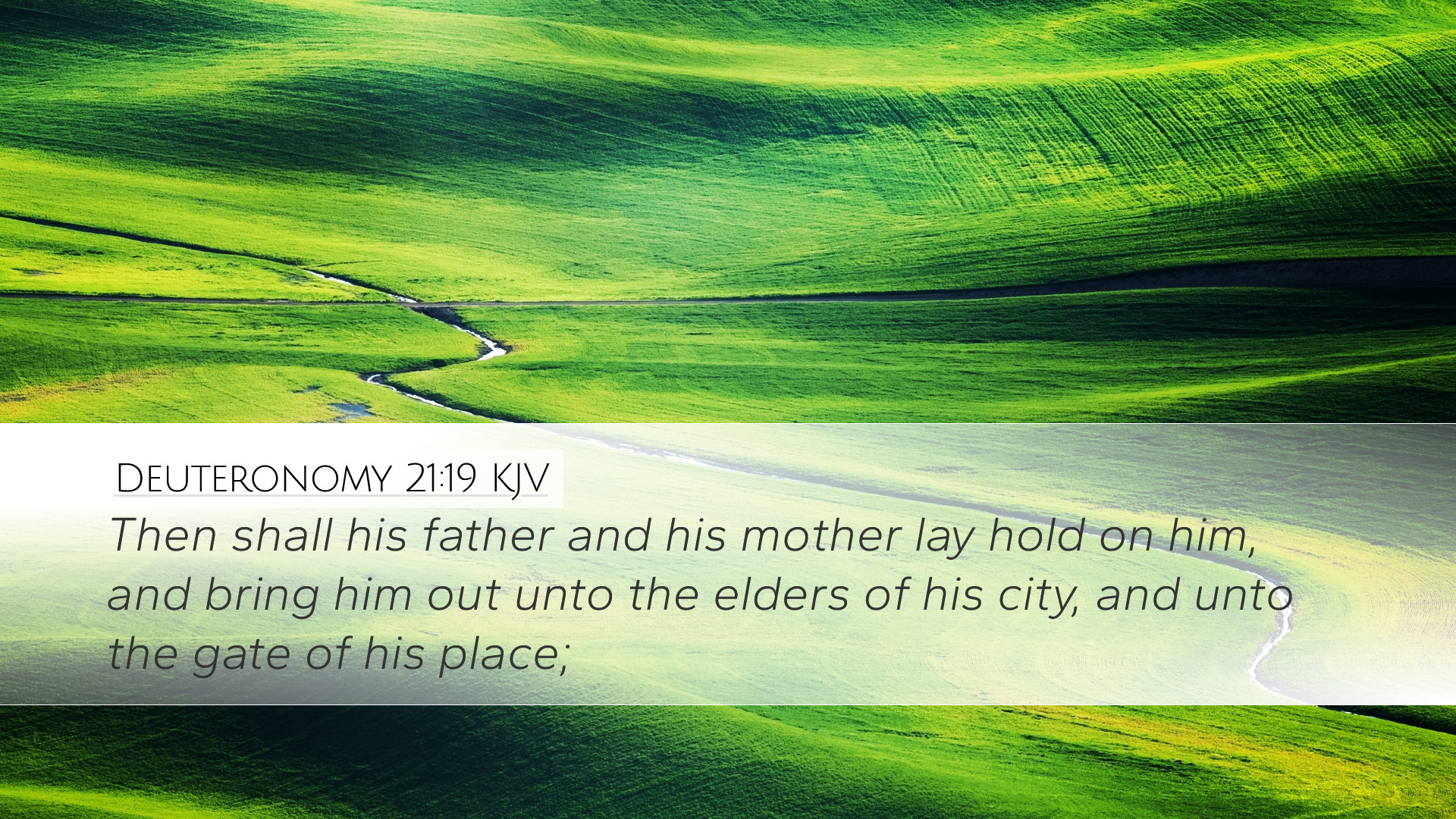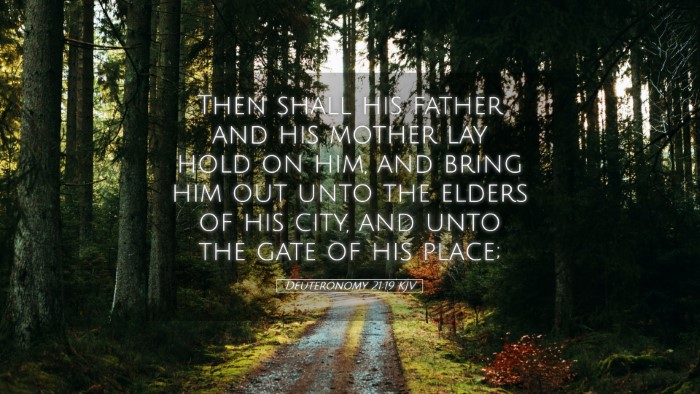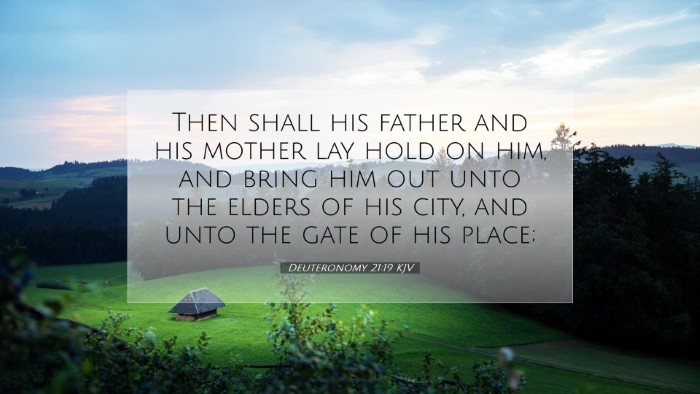Commentary on Deuteronomy 21:19
Verse: "Then shall his father and his mother lay hold on him, and bring him out unto the elders of his city, and unto the gate of his place." (Deuteronomy 21:19)
Introduction
This verse is situated within a larger context that deals with the responsibilities of parents and the regulation of familial conduct within the community. The command addresses a specific cultural practice involving a stubborn and rebellious son, providing a framework for accountability and resolution. This passage serves to highlight the gravity of disobedience, the role of parents, and the communal responsibility of maintaining order according to divine law.
Literary Context
Deuteronomy is primarily a series of speeches by Moses, emphasizing the importance of loyalty to God's covenant and adherence to His laws. This particular statute regarding a rebellious son represents the broader theme of discipline and the consequences of defiance against divine authority.
The Role of Parents
Matthew Henry highlights that the parents’ active role in addressing their son's rebellion illustrates the responsibility placed on them to educate and guide their children. They were to take the initial steps in dealing with disobedience, emphasizing the importance of parental authority and the duty to seek help rather than ignoring or failing to address such behavior.
Understanding "Stubbornness" and "Rebellion"
Albert Barnes provides insight into the terms used in the original Hebrew, suggesting that "stubbornness" refers to a refusal to conform to authority while "rebellion" is an active defiance, often manifesting in actions that disrupt communal harmony. His exposition suggests that these qualities reflect a deep moral failing that can threaten the stability of society.
Judicial Process
This verse initiates a judicial process wherein the elders of the city become involved. Adam Clarke notes that involving the community displays a communal approach to discipline. The elders, recognized as wise and authoritative figures, were tasked with adjudicating cases of familial discord.
Significance of the Gate
The mention of "the gate of his place" signifies a place of public gathering and judgment, symbolizing transparency and collective responsibility. As Barnes remarks, this public aspect underscores the seriousness of sin and rebellion against familial and divine order. It is not merely a private issue but one that requires communal attention and resolution.
Theological Implications
This passage illustrates the tension between grace and discipline within scriptural law. Henry emphasizes that while God’s mercy encompasses His people, He also demands justice and service within relationships. The radical measures prescribed here reflect the seriousness of covenant obligations and God's holiness, which is not to be taken lightly.
God's Justice
As this command ultimately leads to severe consequences for the rebellious son, it raises questions about divine justice and human accountability. Clarke argues that the severity of the punishment showcases God's intolerance for rebellion and sin while also nurturing an environment that prevents moral decay among God's people.
Implications for Modern Believers
Modern applications of this verse may reflect on the importance of parental guidance, the role of community in addressing disobedience, and the nature of authority in the church and family. Barnes articulates that this text serves as a cautionary tale for congregations to consider how they respond to disobedience among their members, fostering an environment of accountability rather than apathy.
Life Lessons for Families
Families today can draw lessons from this verse by understanding the importance of establishing boundaries and consequences. Parents must recognize their role in teaching their children about obedience not only as a rule but as a reflection of their relationship with God. Henry asserts that when parents model accountability and maintain open communication, they can better guide their children in a godly manner.
Conclusion
Deuteronomy 21:19 speaks volumes about the dynamics of family, community, and divine law. By examining the insights of respected commentators like Matthew Henry, Albert Barnes, and Adam Clarke, we can grasp the multifaceted layers of meaning within this verse. The enduring principles of accountability, communal responsibility, and the balance of grace and justice remain pertinent, calling believers to reflect on their own roles as guardians of moral order within their families and the broader community.


